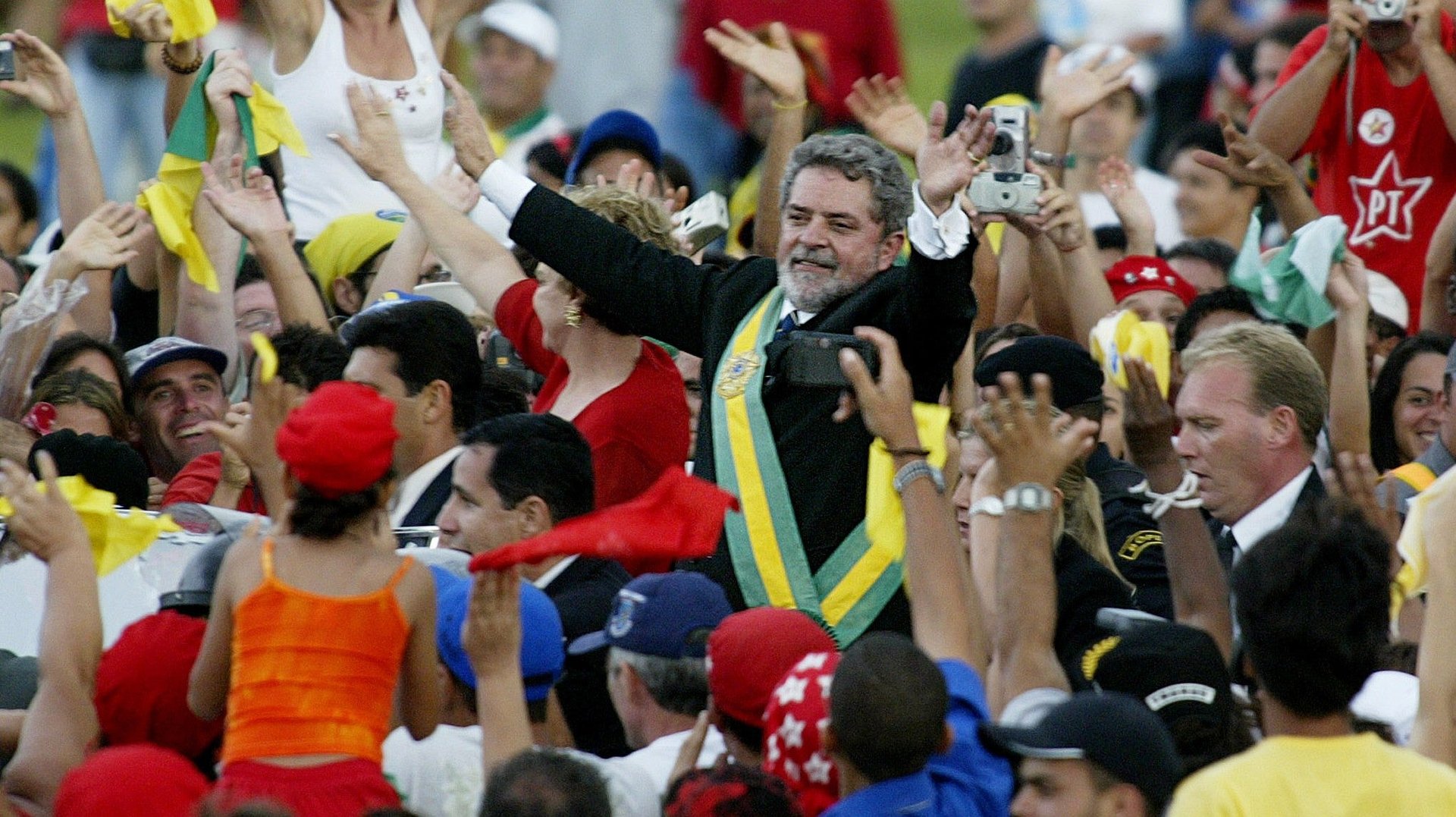How Brazil managed to bypass corruption to launch its biggest ever corruption probe
Brazil might seem like it’s a cesspool of corruption right now. Last week ex-president Luiz Inácio Lula da Silva was the latest to face questioning about a mammoth kickback scheme, in a probe that has already ensnarled dozens of politicians and executives. In January the country dropped from 69th to 76th place in Transparency International’s corruption perceptions index. The World Economic Forum ranks it 135th out of 144 countries for use of public funds.


Brazil might seem like it’s a cesspool of corruption right now. Last week ex-president Luiz Inácio Lula da Silva was the latest to face questioning about a mammoth kickback scheme, in a probe that has already ensnarled dozens of politicians and executives. In January the country dropped from 69th to 76th place in Transparency International’s corruption perceptions index. The World Economic Forum ranks it 135th out of 144 countries for use of public funds.
But another way to see the scandal is as good news—proof that prosecutors are vigorously combating graft, and winning.
A new generation of more aggressive and upright judges and prosecutors are partly responsible. But so is a citizenry that’s started demanding more transparency from politicians, forcing them to pass tougher anti-corruption laws.
“The whole environment has changed radically and companies and politicians will have to get used to that,” Carlos Caicedo, a senior Latin American analyst with IHS in London, told Quartz. “Nobody is untouchable anymore.”
Brazil isn’t alone. Throughout Latin America, a more robust middle class is backing similar efforts. In Guatemala, prosecutors and street protestors last year toppled president Otto Pérez Molina, who is accused of arranging an extensive kickback system through the country’s customs office.
Chile, which had been relatively scandal-free compared to its neighbors, has been recently rocked by a series of political corruption cases (link in Spanish) including an investigation into alleged tax fraud by president Michelle Bachelet’s daughter-in-law. In Honduras, citizen marches have forced president Juan Orlando Hernández to open the country’s doors to an international anti-corruption mission (Spanish) from the Organization of American States, to help investigate the siphoning of $200 million out of the country’s national health service.
Time for a clean-up
The trigger for Brazil’s anti-corruption drive came in 2013, in the midst of multi-billion-dollar preparations for the 2014 World Cup. A bus fare hike of 0.2 reais ($0.09 at the time) was enough to send hundreds of thousands of Brazilians to the streets. The protests quickly turned into a broader call to end government mismanagement, which led lawmakers to pass a tough anti-corruption law (Portuguese).
That law has provided powerful tools to investigators in the latest corruption probe, dubbed Operação Lava Jato (“Operation Car Wash”), which is looking into money laundering and bribery at the state oil company, Petrobras. It added to a string of anti-corruption initiatives from previous years, enabling investigators to discover illegal behavior that had previously gone undetected, says Ricardo Matheus, a Delft University of Technology PhD candidate who has studied how transparency rules are changing Brazil’s governance.
“The scandals always existed,” Matheus tells Quartz. Now Brazilians know about them, from menial offenses, such as public officials paying for a haircut with public money, to the diversion of billions of reais (Portuguese) in Lava Jato, he adds.
That case, which started out as a run-of-the-mill money-laundering probe, has grown into the country’s largest corruption investigation. There are several reasons why.
First off, it’s being carried out in the southern city of Curitiba, away from potential political interference in Brasília, the country’s capital. The man leading it, a 35-year-old Harvard-trained lawyer named Deltan Dallagnol, is part of a new breed of high-minded prosecutors who are more serious about battling corruption than their predecessors, Justino de Oliveira, a professor at the University of São Paulo’s law school, tells Quartz.
They are making the most of the new tools at their disposal. For example, they’ve been using leniency agreements, a new recourse under the anti-corruption law, to convince accused companies and their executives to rat out others. Prosecutors are offering similar deals to politicians. Lula’s detention on March 4 came a day after news leaked that one of his party’s senators, Delcídio do Amaral, had reached a plea-bargain agreement alleging that the former president tried to pay off witnesses to stay quiet. (Lula’s charitable foundation, the Lula Institute, says that he “never took part in or benefited from any illegal act, directly or indirectly.”)
The federal judge presiding over Lava Jato, Sergio Moro, has also been unusually aggressive by Brazilian standards, jailing suspects before they go on trial to prevent them from destroying evidence or intimidating witnesses. The practice has been criticized as a coercive way of getting plea bargains, but Moro nevertheless has become a national hero.
In the long term, Brazil and its economy will benefit from cleaner politics, thanks to Lava Jato and other probes, analysts say. The bad news is that, in the short term, “this means very little for the common man on the ground who is facing high levels of inflation and the worst recession in years,” Jimena Blanco, the head of Latin American research at global risk firm Verisk Maplecroft, tells Quartz.